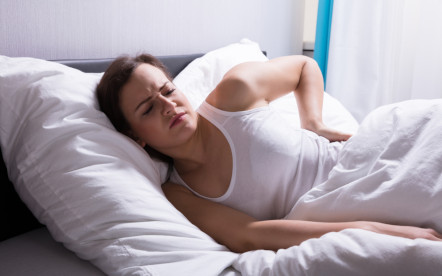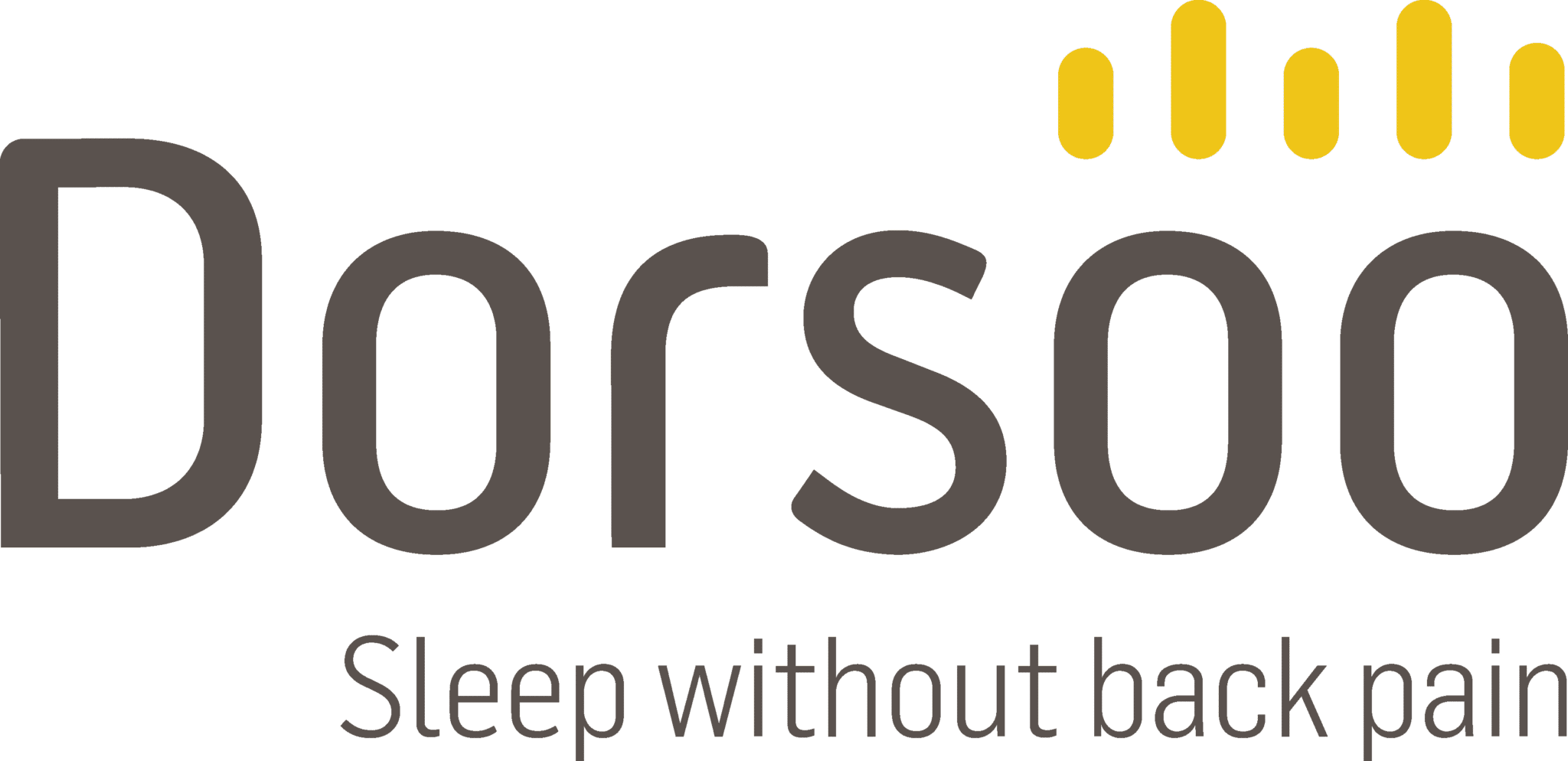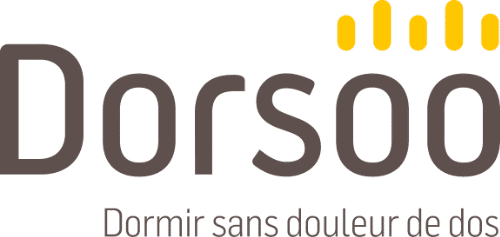Pain in the middle back after sleeping?
Many people wake up in the morning (or even during the night) with pain in the middle back. Where does this come from, and more important: what can you do about it? Often, a good bed with the correct mattress will solve this problem.
Pain in the middle back due to a trapped nerve
What is the middle back exactly? The middle back or thoracic spine constitutes the transition from the neck vertebrae to the vertebrae of the lower back (the lumbar vertebrae). This thoracolumbar transition contains an important nerve: the nervus ilio-hypogastricus. When trapped or irritated, this nerve can radiate pain to the lower back, the groin area and the hip area.
Pain in the middle back due to turning forces
The middle back is also the inflection point of the lower back to the upper back. Because the middle back experiences many twisting movements, considerable bending and twisting forces are exerted on the vertebrae of the middle back. Therefore, it is important that this area can relax and recuperate properly during the night.
Due to this extra load, the middle back must also be extra supported by good muscles. The most important muscles that ensure stability and force in the back are the m. erectorspinae and the m. multifidus. The intervertebral muscles are also contributing to this. Even more than absolute force, stabilisation exercises and the increase of endurance in these muscles are important to address pain in this region. You can ensure this by doing sport, adopting a good posture and using the correct movements and techniques during lifting and twisting.
Moreover, a good bed with an adjusted mattress and a good pillow are important for the recovery of this muscle and for the (middle) back in general. Many people with back problems do not realise that this is caused by an incorrect posture during sleep. The back must be nicely in line and especially straight, also if you are sleeping on your side.

Pain in the middle back due to the trapezius muscle
The trapezius muscle is our ‘stress muscle’. Any tension in our body – either mental or physical – will express itself in tension due to pain in the trapezius. Due to the various connection points of this muscle to the head, the middle back, the shoulder blade and the collar bone, this could cause many (pain) problems at these points. This can also be accompanied by headache and/or tiredness.
Pain in the middle back due to a tense diaphragm
At middle back height, the diaphragm also connects internally to the vertebrae. The mid riff or diaphragm is a large horizontal muscle. Tensing of the diaphragm can cause a lot of pain in the back. This is in particular the case when your diaphragm is tense, for instance due to stress. A tensed diaphragm also causes shallow breathing, so that we ‘pull’ more on our shoulders, and this causes again extra tension of the upper fibres of the trapezius muscle. A good night’s sleep ensures proper relaxation of the diaphragm.
Pain in the middle back due to scoliosis
Another reason for pain in the middle back after sleeping is scoliosis. Scoliosis is a curving of the back. Scoliosis is a congenital disease. The vertebrae are not nicely aligned but form a curve. The middle back often is the bending point in scoliosis: this is where the misalignment is located. In congenital scoliosis, the back hurts when it is ‘straightened’. Dorsoo has a unique bed with a mattress that adjusts to the requirements of the back and supports the scoliosis where necessary, without pain and discomfort, because the ‘natural’ curve of the back is respected.


